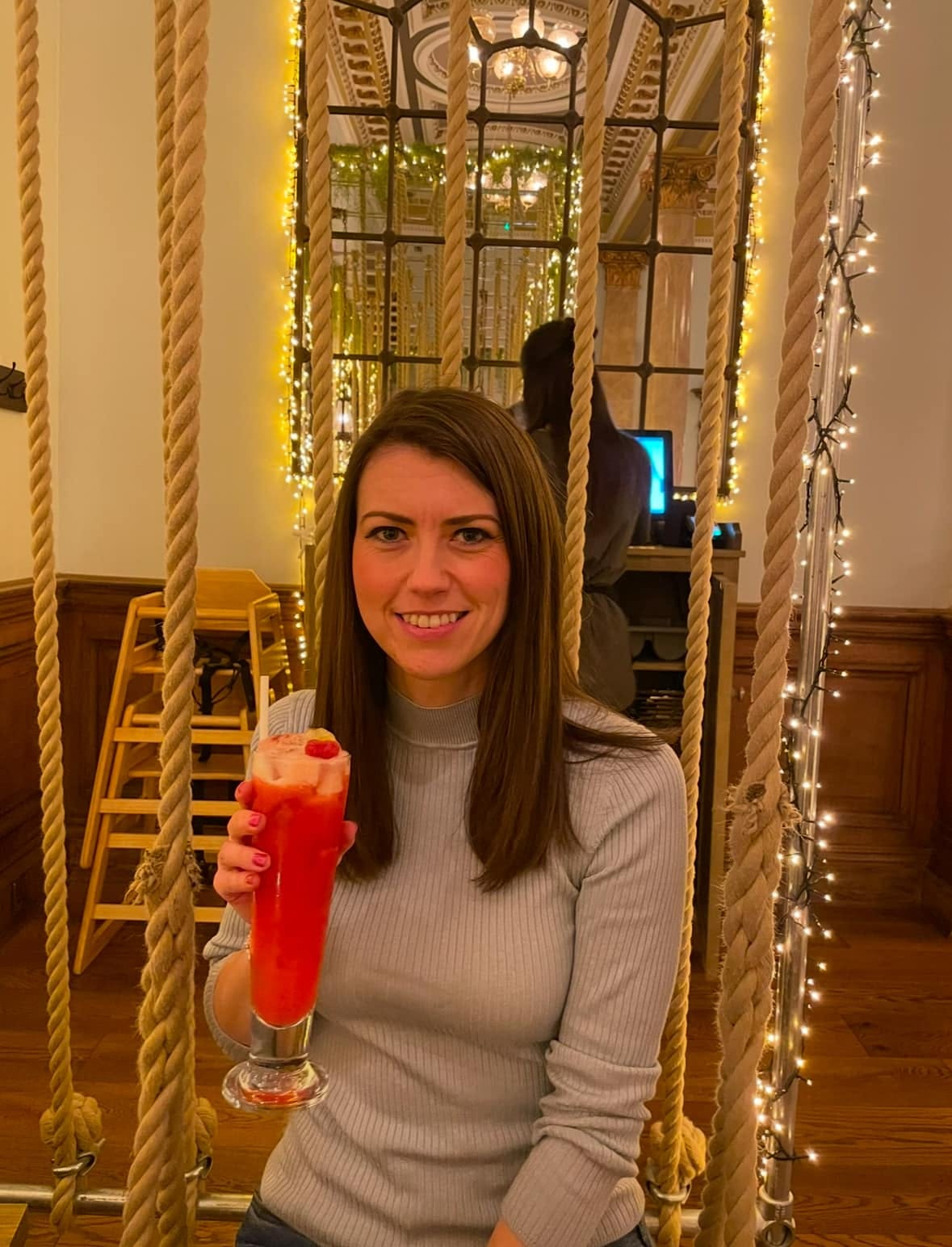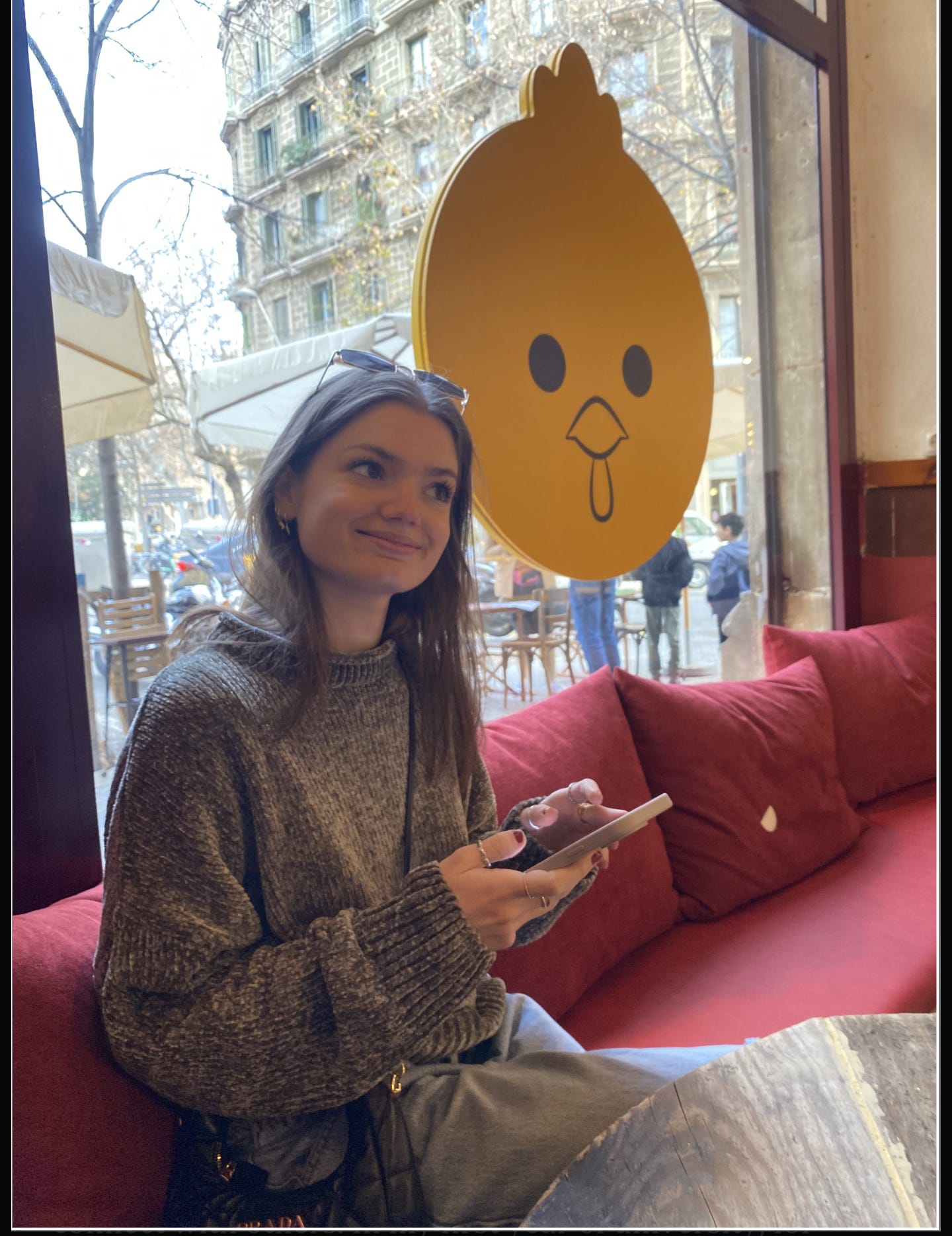Sober curious: 'I cut out alcohol and discovered 2,000 people like me'
The city students turning their backs on "hanxiety" to embrace the 'low alcohol' movement
Two years ago, Kristin Lamb asked herself a question: Why sacrifice mountains of money and a lot of time on a habit that is ultimately detrimental to health? The answer she came up with made this Lothian woman decide to cut alcohol out of her life more than two years ago.
But little did she suspect at that time, in talking about what she was doing on social media, she would be helping to create a pioneering community of almost 2000 other 'sober curious' individuals, writes Rebecca Johns.
Sober curious refers to individuals who are becoming more mindful of their alcohol consumption without necessarily committing to total abstinence, a term that has gained significant traction in recent years.
And – perhaps surprisingly to some – students are leading the way despite their traditional hard-drinking, party image.
After spending her twenties loving a night out and notorious among her friends for always snapping photos of her cocktails or instigating a round of shots, Kristin is now "99% sober". She only wavers for a 1% cider or a 2.5% Radler (basically a German shandy for the less on-trend amongst us).
The blog Kristin set up, Sober And Curious now has more than 1800 followers and offers advice to anyone hoping to follow suit and cut down on the booze. As well as useful tips, such as her list of alternatives to a Christmas tipple, she also organises 'boozeless brunches' and even sells sobriety merchandise.
Kristin represents a growing shift in young people's drinking habits. A recent study by the Portman Group, created to help the alcohol industry efficiently self-regulate and promote moderate drinking, found that 31% of under-24s want to cut back on alcohol, and around a third of 18-24 year-olds do not drink at all.
Frances ImThurm, 21, a Spanish and Philosophy student at the University of Edinburgh, is one such student who has opted for semi-sobriety rather than suffering the Sunday blues after a night on the sauce.
She explained that after a boozy first year, she had decided to cut down "mainly due to the intense pressure and responsibility that comes with fourth year".
"I just don't have the time to waste my evening (and pretty much the whole next day) on alcohol: I have to be in the library, nose to the grindstone. So I've largely lost my taste for alcohol.
"I am now settled into my life at Edinburgh University: I have my friends, I have my responsibilities, and alcohol is just not necessary anymore!"
But why the sudden shift in habits? Sonja Mitchell, founder of Jump Ship, Scotland's first alcohol-free brewery, credits the pandemic with changing people's perspectives.
In fact, a government survey of over 5,000 adults found that 80% of people over the age of 18 have made the decision to change their lifestyle in 2021. This has contributed to a booming wellness industry, which is now a third larger in the UK than it was in 2019. Sonja sees a correlation here with the predicted 7% annual growth in the soft drinks market, which has achieved significant growth over the past two years.
And Jump Ship is both contributing to and capitalising on the trend. "When I decided to get sober after a dry January in 2018, I was frustrated by the lack of quality low-alcohol drinks on the market."
“We now own a brewery just outside the city of Edinburgh, selling over eight different styles."
Their target market is embodied in young people like Valentina Mitchel, an English Literature student at the University of Edinburgh, who made a positive decision to change her relationship with alcohol.
Start the morning with a clear head
"I began to see how drinking often took me away from the things that really mattered to me, like always starting the morning with a clear head, pursuing my goals and being fully present with the people I love."
This concern for holistic wellbeing has led young people away from raves in Bongos to Sunday morning running clubs, mid-week meditation classes and yoga retreats.
Walk around the city on a Saturday morning and you are more likely to see people jogging than stumbling home from a heavy night. Indeed, The Edinburgh Park Run, which takes place at 9am is one of the busiest park runs in Scotland, often attracting around 500 people - most of whom wouldn't be competing after a busy Friday night in Cowgate.
Yoga bigger than club nights
Similarly, the University of Edinburgh Yoga Society has over 3000 followers on Instagram, almost triple that of Edinburgh Big Cheese, the city's biggest student club night.
Kristin has also taken up exercise since starting her blog. She has now run a half marathon and has signed up for the full Edinburgh Marathon in 2025. She added: "It's amazing how much time you find when you're not hungover on the weekend.”
But while sports clubs are thriving, the generational volta has prompted criticism from both seasoned drinkers and the nightclub industry.
According to a survey by Keep Hush in July 2022, Gen Z are less interested in clubbing after the pandemic, with only 25 per cent expressing an interest in going out. This has contributed to the closure of such establishments with figures from the Night-Time Industries Association (NTIA) showing that there are now only 82 nightclubs left in Scotland- That's down from 125 venues in 2020, a drop of more than 30 per cent in four years.
This has also led to backlash from people who describe Gen Z as “boring”, "old codgers" or the "crochet generation", in reference to a TikTok trend that has seen knitting become a popular pastime.
Jump Ship said they had experienced disdain from those who saw their mission as redundant, while Kristin opened up about the criticism she faced: "I've lost contact with some people I used to go out drinking with, and of course there are a lot of online trolls telling me how boring I am for not wanting to drink. I also just had a waiter at the weekend tell me that my end of the table wasn't having any fun because I ordered sparkling water... it was Sunday lunchtime".
But for Francis, Valentina and Kristin sober curiosity represents opportunities for a more fun life.
Rather than spending nights alone, young people are flocking to other industries. According to Mintel, going to restaurants is one of the most popular choices for socialising, while online gaming, visiting cafes, and going to the cinema have gained comparable popularity to going out for a drink.
Across the city, many bars and restaurants are instead embracing the opportunities of this new market. Indeed, over 80 restaurants and bars in the Scottish capital stock Jump Ship, while the EICC often hosts an alcohol-free bar alongside its regulars.
All about the experience
We spoke to the manager of renowned comedy club The Stand, Kat McGregor, who explained: "We've definitely noticed a change in culture and an increase in the uptake of 0% products, particularly among students, since the Covid pandemic.
"We wanted to get Jump Ship's Yard Arm on draught in time for Christmas as we are seeing an increase in 'Christmas Work-Do's' where people are trying to cut down on their drinking and/or have designated drivers within the group who still want to enjoy the taste of well brewed beer without the alcohol."
Kristin added: "I may not go out as much as I used to, but when I do, it's all about the experience, the socialising and the memories!"
For these students, change is about embracing the life they have been given and enjoying the city around them.
Valentina left us with her final thoughts: “I've learned that my true joy comes from being surrounded by people and places that make me feel safe and content. When I don't feel the need for anything else. I've found a balance that works for me, one where I can enjoy life fully without overindulging. And that's enough for me.”




